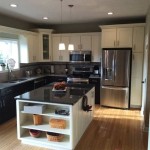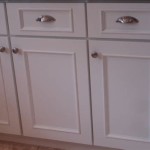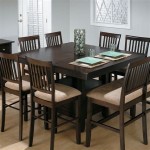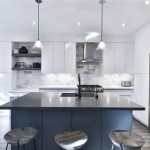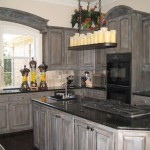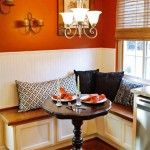Rustic Wood Countertops for Kitchens: A Comprehensive Guide
Rustic wood countertops have experienced a surge in popularity within kitchen design, prized for their natural beauty, warmth, and inherent character. These countertops offer a departure from the sleek, often sterile aesthetic of modern materials like stainless steel and quartz, introducing an organic element that can transform the heart of the home. Understanding the nuances of wood selection, maintenance, and design integration is crucial for achieving the desired aesthetic and ensuring the longevity of these unique surfaces.
The term "rustic" encompasses a broad range of styles, each with its own characteristics. For wooden countertops, this can manifest in various ways, from the type of wood used to the finishing techniques applied. Some rustic countertops showcase prominent knots, grain variations, and even minor imperfections, highlighting the wood's natural origin. Others may lean towards a more refined rustic aesthetic, with smoother surfaces and more subdued grain patterns, while still retaining the warmth and texture associated with wood.
The appeal of rustic wood countertops extends beyond aesthetics. Wood is a renewable resource, making it an environmentally conscious choice. Moreover, the tactile quality of wood is inherently inviting. A well-maintained wood countertop can provide a comfortable and inviting workspace, a welcome contrast to the harder, colder surfaces found in many modern kitchens.
Wood Species Selection: Factors to Consider
The choice of wood species significantly impacts the appearance, durability, and cost of a rustic wood countertop. Each species possesses unique characteristics that must be carefully considered in relation to the intended use and overall kitchen design. Factors such as hardness, grain pattern, color, and resistance to moisture and pests all play a critical role in the selection process.
Hardwoods: Hardwoods, such as maple, walnut, oak, and cherry, are generally preferred for kitchen countertops due to their density and durability. Maple is a popular choice for its light color, smooth grain, and affordability. It is a relatively hard wood, making it resistant to scratches and dents. Walnut offers a rich, dark brown color and a distinctive grain pattern, adding a touch of elegance and sophistication to the kitchen. Oak is known for its strength, durability, and prominent grain pattern, which can enhance the rustic aesthetic. Cherry boasts a warm reddish-brown hue and a smooth, even grain, creating a classic and timeless look. The Janka hardness scale is a useful tool for comparing the relative hardness of different wood species. A higher Janka rating indicates a harder, more durable wood.
Softwoods: While hardwoods are typically favored, certain softwoods, such as pine and fir, can also be used for rustic wood countertops, particularly if a more weathered or distressed look is desired. Softwoods are generally less expensive than hardwoods, but they are also more susceptible to scratches and dents. Pine is readily available and relatively inexpensive, making it a popular choice for budget-conscious homeowners. Fir offers a warm, reddish-brown color and a straight grain pattern. When using softwoods, it is crucial to apply a durable finish to protect the surface from moisture and wear.
Reclaimed Wood: Reclaimed wood is an increasingly popular option for rustic countertops. This wood is salvaged from old barns, factories, and other structures, giving it a unique history and character. Reclaimed wood often exhibits a weathered patina, nail holes, and other imperfections that contribute to its rustic charm. Using reclaimed wood is also an environmentally responsible choice, as it reduces the demand for newly harvested timber. However, reclaimed wood can be more expensive than new lumber and may require more extensive preparation to ensure it is suitable for use as a countertop.
Beyond the species, consider the cut of the wood. Plain-sawn lumber displays a cathedral grain pattern, while quarter-sawn lumber exhibits a more linear grain. Rift-sawn lumber offers the most consistent grain pattern, but it is also the most expensive. The choice of cut will influence the overall look and feel of the countertop.
Sealing and Finishing: Protecting and Enhancing the Wood
Proper sealing and finishing are essential for protecting a rustic wood countertop from moisture, stains, and scratches. The finish also enhances the natural beauty of the wood, bringing out its grain and color. A variety of finishes are available, each with its own advantages and disadvantages. The chosen finish should be durable, food-safe, and compatible with the type of wood used.
Oil-Based Finishes: Oil-based finishes, such as mineral oil, linseed oil, and tung oil, penetrate the wood fibers, providing a natural and subtle sheen. These finishes are relatively easy to apply and maintain, but they offer less protection against moisture and stains than other options. Frequent reapplication is typically required to maintain the finish and prevent the wood from drying out. Mineral oil is a food-safe option that is commonly used for butcher block countertops. Linseed oil and tung oil provide a slightly more durable finish than mineral oil, but they can take longer to dry.
Water-Based Finishes: Water-based finishes are more durable and water-resistant than oil-based finishes. They dry quickly and are available in a variety of sheen levels, from matte to glossy. Water-based polyurethane is a popular choice for its durability and ease of application. However, it can create a plastic-like appearance, which may not be desirable for those seeking a more natural look. Water-based acrylic finishes offer a more natural look and feel than polyurethane, but they may not be as durable.
Conversion Varnish: Conversion varnish is a two-part finish that provides exceptional durability and water resistance. It is often used in commercial settings due to its ability to withstand heavy use. Conversion varnish requires specialized equipment and training to apply properly, making it a less common choice for DIY projects.
Epoxy Resin: Epoxy resin creates a thick, glossy, and waterproof surface. It is often used to create river tables or to encase decorative objects within the countertop. Epoxy resin is extremely durable but can be susceptible to scratches and heat damage. It is also a relatively expensive option.
In addition to the finish, consider applying a sealant to the underside of the countertop to prevent moisture from penetrating the wood. A vapor barrier can also be installed between the countertop and the cabinet base to further protect the wood from moisture.
Regardless of the chosen finish, proper surface preparation is essential. The wood should be sanded smooth and free of dust and debris before applying the finish. Multiple coats of finish are typically required to achieve the desired level of protection and appearance. Follow the manufacturer's instructions carefully for application and drying times.
Design Integration and Maintenance
Rustic wood countertops can be seamlessly integrated into a variety of kitchen designs, from traditional to contemporary. The key is to balance the warmth and texture of the wood with the other elements in the kitchen, such as cabinetry, flooring, and appliances. Regular maintenance is crucial for preserving the beauty and longevity of a rustic wood countertop.
Design Considerations: Rustic wood countertops pair well with natural materials, such as stone, brick, and copper. They can be used to create a focal point in the kitchen or to complement existing rustic elements. Consider the color and grain pattern of the wood when selecting cabinetry and flooring. Light-colored woods, such as maple and birch, can brighten up a dark kitchen, while darker woods, such as walnut and cherry, can add warmth and richness. The edge profile of the countertop can also contribute to the overall aesthetic. A simple square edge creates a clean and modern look, while a rounded or beveled edge softens the appearance. Live edge countertops, which retain the natural edge of the tree, add a unique and organic touch.
Cleaning: Cleaning rustic wood countertops requires a gentle approach. Avoid using harsh chemicals or abrasive cleaners, as these can damage the finish and scratch the wood. A mild dish soap and warm water are typically sufficient for everyday cleaning. Wipe up spills immediately to prevent staining. Avoid placing hot pots and pans directly on the countertop, as this can cause heat damage. Use cutting boards to protect the surface from scratches and knife marks.
Maintenance: Periodic maintenance is essential for keeping a rustic wood countertop in good condition. Oil-based finishes require regular reapplication to maintain their protective properties. Water-based finishes may need to be recoated every few years, depending on the level of use. Scratches and minor damage can often be repaired with sandpaper and a fresh coat of finish. More extensive damage may require professional repair. It's important to regularly inspect the countertop for signs of moisture damage, such as warping or discoloration. Address any issues promptly to prevent further damage.
Proper support is also crucial. Ensure that the cabinets beneath the countertop are level and strong enough to support the weight of the wood. Long spans of countertop may require additional support to prevent sagging. Follow manufacturer or professional guidelines for installation and support requirements.

9 Rustic Kitchen Countertop Design Ideas

Wood Countertops Cost Care And Styles

71 Cozy Wooden Kitchen Countertop Designs Digsdigs
Things To Know Before Buying Reclaimed Wood Countertops

Wood Countertops By Shenandoah Kitchen Home

Rustic Kitchens What Are They Makes Them Amazing

30 Rustic Countertops That Add Coziness To Your Home Digsdigs

Rustic Countertops Everything You Need To Know
:max_bytes(150000):strip_icc()/33-IslingtonApartment11-5a6f7b1e43a103003782bb71.jpg?strip=all)
16 Modern Kitchens With Butcher Block Countertops

Natural Wood Countertops
See Also

